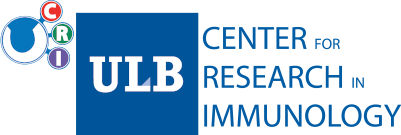Lung cancer: from immune signature analyses to tumor-associated neutrophil metabolism
With approximately 1.8 million deaths each year, lung cancer has become the leading cause of cancer-related mortality in women and men worldwide. In the last fifteen years, clinical advances have been made with targeted therapies and immunotherapies. However, current treatments only benefit a fraction of patients and rarely lead to a cure, urging scientists to understand the complexity of this disease better. To address the molecular and cellular mechanisms driving lung cancer growth and treatment resistance, my laboratory combines human tumor material, genetically-engineered mouse models, bioinformatics, and new research strategies to manipulate both tumor and non-tumor cells. In this seminar, I will summarize our recent investigations in two intersecting major research areas: tumor immunology and cancer metabolism. First, through an exploration of tumor-infiltrating immune cells, we identified that tumor-associated neutrophils (TANs) promote lung tumor progression and resistance to immunotherapy. Second, in studying cancer metabolism, we found that not only lung tumor cells, but also TANs have an altered metabolism, which is directly linked to their tumor-supportive capacity. Based on these published and unpublished results, we are and will continue to explore and manipulate the functional diversity of neutrophils in cancer and interrogate how they communicate with other cells of the tumor microenvironment. Our ultimate goal is to identify clinically-relevant vulnerabilities that can be used to impact cancer growth and sensitize refractory tumors to current and future therapies. More broadly at ULB, collaborative and cutting-edge investigations of myeloid cell biology combined with efforts at harnessing T cells for immunotherapy could constitute a unique opportunity to gain a comprehensive understanding of the immune system in cancer and define new treatment options for the benefit of patients.
Etienne Meylan studied biology at the University of Lausanne. In 2006, he received a PhD in Life Sciences from the same university, for his work on antiviral innate immunity performed in the laboratory of Jürg Tschopp. From 2007 to 2010, he was a postdoc in the laboratory of Tyler Jacks at MIT, supported by fellowships from the Swiss National Science Foundation (SNSF) and the Human Frontier Science Program. During this time, he explored the role of NF-kappaB signaling in lung cancer. In 2011, he established his laboratory at the Swiss Institute for Experimental Cancer Research (ISREC) at EPFL, as a SNSF Professor and since 2013 as Tenure-track Assistant Professor. His laboratory investigates the immunometabolic regulation of lung cancer development, with a focus on tumor-associated neutrophils.
Monday, September 7th, 2020 from 11:00 AM to 12:00 PM
Albert Claude Auditorium (Point Centre)
9 Avenue Georges Lemaître
6041 Gosselies (Belgium)
